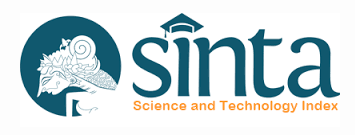Narasi Sebagai Agen Politik; Seduksi Narrative Empire dalam Bingkai Hegemoni Intertekstualitas. Sebuah Respon Islami
Abstrak
Abstract; Politik senantiasa terpaut dengan narasi, bahkan politik adalah sebentuk narasi tentang konflik rasionalitas tentang (definisi dan praktik) keadilan, kepemimpinan dan kekuasaan dalam ruang sosial. Paparan berkebalikan pun bisa diuraikan, bahwa narasi adalah sebentuk politik. Setiap narasi adalah perjuangan tekstual (wicara/bicara-tulisan) untuk membuat sebuah hal-ihwal diterima dan membuat hal-ihwal yang lain ditolak atau setidaknya ditunda untuk diterima dalam ruang sosial. Narasi adalah pewacanaan diri sendiri sang aparatus untuk memenangkan modal sosial berupa expertition (otoritas sebagai ahli) sehingga percakapan/¬pengujarannya sah dikarenakan dilakukan oleh ahli yang terlatih. Empire inilah yang membuat aktor politik dan narasi alternatif kontemporer tersandera habis-habisan dan tidak mampu mengambil posisi lain kecuali menunduk-dalam-nikmat di hadapan agenda tunggal empire yakni akumulasi kapital melalui militerisasi dan digitalisasi industri. Absensi sakralitas merupakan syarat mutlak bagi berlakunya ontologi yang dipaksakan melalui bujukan secara fisik dan simbolik oleh empire. Absensi sakralitas dalam ruang sosial dimulai dengan pengingkaran taksonomi tradisional atas ilmu. Mengikuti pembagian tradisional, ilmu terpilah ke dalam dua bagian besar, yakni ilmu naqliyah (ilmu nukilan yang sumbernya adalah otoritas yang otoritatif tapi tidak otoriter, dikembangkan dengan metodologi taqlidi) dan ilmu ‘aqliyah (ilmu intelektual yang sumbernya adalah akal suci sang intelektual, dikembangkan dengan metodologi tahkiki). kesempurnaan manusiawi di sini termasuk di dalamnya potensi yang dimiliki manusia untuk menyikapi setiap narasi thaguti dalam bingkai profetik dengan jalan mengenali, membelokkan, memparodikan selan¬jutnya mentransendensikan narasi tadi kembali kepada sumbernya. Kata Kunci: Narasi, Agen Politik, Respon Politics is always connected with the narrative, even politics is a form of narrative about the rationality of the conflict (the definition and practice of) justice, leadership and power in the social space. Exposure contrasts can be described, that narrative is a form of politics. Each narrative is a textual struggle (speech / speech-writing) to make an acceptable individual things and make other individual things rejected or at least postponed for acceptance in the social space. Narrative discourse itself is the apparatus to win the social capital of expertition (authority as experts) so that the conversation / ¬saying valid because conducted by trained experts. Empire is what makes political actors and contemporary alternative narrative hostage to all-out and not able to take any other position except down-in-favor in the presence of a single agenda of empire that is the accumulation of capital through militarization and digitizing industry. Sakralitas attendance is a necessary condition for the entry into force of ontologies that are imposed by persuasion physically and symbolically by the empire. Attendance sakralitas in social space starts with the traditional taxonomy on science denial. Following the traditional division, science divided into two major parts, namely science naqliyah (excerpt from the source of knowledge is authority authoritative but not authoritarian, developed the methodology taqlidi) and science 'aqliyah (intellectual knowledge source is a sacred sense of the intellectual, developed by tahkiki methodology). human perfection here including human potentials to address any prophetic narrative thaguti in the frame by way of recognizing, deflect, parodied further transcends narrative was back to its source. Keywords : Narrative, Agent Politic, Response
##submission.howToCite##
Asril, S. (1). Narasi Sebagai Agen Politik; Seduksi Narrative Empire dalam Bingkai Hegemoni Intertekstualitas. Sebuah Respon Islami. Jurnal Dakwah Tabligh, 14(2), 227-238. https://doi.org/10.24252/jdt.v14i2.330
Terbitan
Bagian
Vol. 14. No. 2, Desember 2013
Once an article was published in the journal, the author(s) are:
granted to the journal right licensed under Creative Commons License Attribution that allows others to share the work with an acknowledgment of the work's authorship. permitted to publish their work online in third parties as it can lead to wider dissemination of the work. continue to be the copyright owner and allow the journal to publish the article with the CC BY license receiving a DOI (Digital Object Identifier) of the work.





